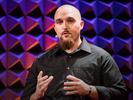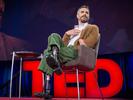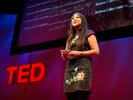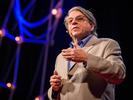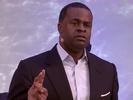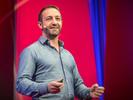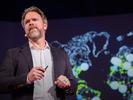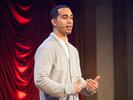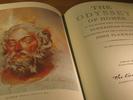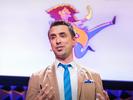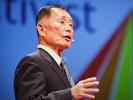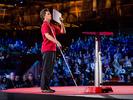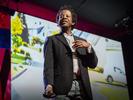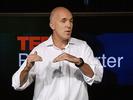NPR/TED Staff appears in the following:
Is There A Better Way To Be Buried?
Friday, January 29, 2016
Can we commit our bodies to a cleaner, greener Earth, even after death? Jae Rhim Lee says it's possible by using a special burial suit seeded with pollution-gobbling mushrooms.
Is Honesty The Best Policy When Someone Is Dying?
Friday, January 29, 2016
As an emergency medical technician, Matthew O'Reilly was used to telling a white lie when patients asked if they were dying. O'Reilly describes what happened when he decided to tell the truth.
How Can We Prepare For A Graceful Death?
Friday, January 29, 2016
At the end of our lives, what do we most wish for? BJ Miller is a palliative care physician who thinks about how to create a dignified, graceful end of life for his patients.
What Do You Want To Do Before You Die?
Friday, January 29, 2016
Artist Candy Chang turned an abandoned house into a giant chalkboard with the prompt: "Before I die I want to ____." Her neighbors' answers described the aspirations of their community.
Do We Need A New Narrative For Death?
Friday, January 29, 2016
Amanda Bennett explains why having hope while watching a loved one die shouldn't warrant a diagnosis of "denial." She calls for a more heroic narrative for death — to match the ones we have in life.
Does The Road To Changing The World Go Through City Hall?
Friday, January 08, 2016
Political theorist Benjamin Barber argues that cities and city mayors are the key to bypassing political gridlock and solving many of our global challenges.
How Are Mayors Better Poised to 'Get Things Done'?
Friday, January 08, 2016
Atlanta Mayor Kasim Reed says mayors are in a position to accomplish a great deal, because they're locals. They can see a city the way "people who are most in need of help see it," he says.
How Can Public Spaces Change A City's Character?
Friday, January 08, 2016
For Amanda Burden, a city is defined by its public spaces. The former city commissioner of New York City explains why a promenade, a park or even a park bench, are vital to a city's ability to thrive.
Can Changing Your Route Change Your Experience Of A City?
Friday, January 08, 2016
Mapping apps find the fastest route. But what are you missing along the way? Computer scientist Daniele Quercia describes how "happy maps" can give you the most beautiful route.
How Are Some Fragile Cities Tackling Their Worst Problems?
Friday, January 08, 2016
Fast-growing cities are often riddled with violence, drug trafficking and unemployment. Security researcher Robert Muggah explains how some cities are using new approaches to address these problems.
How Does A Rikers Inmate Become a Hero?
Friday, December 18, 2015
As a teenager, Ismael Nazario spent more than 300 days in Rikers Island's solitary confinement before being convicted of a crime. He describes how every day was a test to survive.
How Does The Journey Change The Hero?
Friday, December 18, 2015
After completing her harrowing solo sail around the world, Dame Ellen MacArthur describes how that journey transformed her.
How Does A Hero's Journey Begin?
Friday, December 18, 2015
Dame Ellen MacArthur's journey began when she discovered sailing. She describes how years later she undertook her greatest challenge: to sail solo around the world faster than anyone in history.
What Is The Blueprint For Stories About Heroes?
Friday, December 18, 2015
Host Guy Raz raises the curtain on this episode by exploring the hidden blueprint embedded within our most popular and powerful stories.
How Can Mentors Turn An Uncertain Journey Into A Heroic One?
Friday, December 18, 2015
Jarrett J. Krosoczka is a successful author and illustrator. But, he says, his life could have gone in a completely different direction, if he hadn't had a long line of mentors.
Is Forgiveness The Ultimate Test?
Friday, December 18, 2015
In 1942, the U.S. government interned George Takei and his family in a Japanese-American internment camp. Decades later, the actor describes his journey to forgive the country that betrayed him.
How Can You See Without Seeing?
Friday, November 20, 2015
Daniel Kish has been blind since he was 13 months old, but has learned to "see" using a form of echolocation.
What Is A 'Whitopia' — And What Might It Mean To Live There?
Friday, November 20, 2015
As America becomes more multicultural, Rich Benjamin noticed a phenomenon: some communities are actually becoming less diverse. So he got out a map, found the whitest towns in the USA and moved in.
How Did A Mishap Lead To An Artist's Best Work?
Friday, November 20, 2015
Sculptor Janet Echelman found her voice as an artist when her paints went missing — which forced her to look to an unorthodox new art material.
How Did Endurance Help Early Humans Survive?
Friday, November 20, 2015
Christopher McDougall explores the mysteries of the human instinct to run. How did endurance help early humans survive — and what urges from our ancient ancestors spur us on today?


